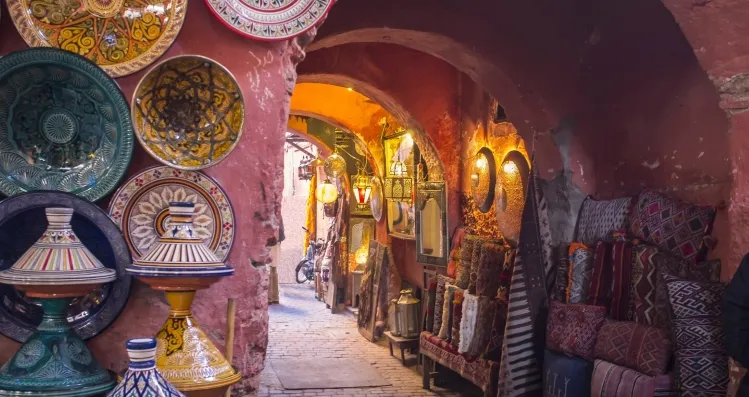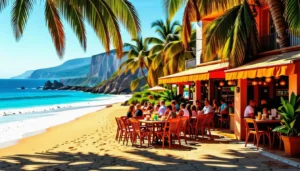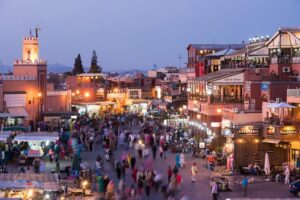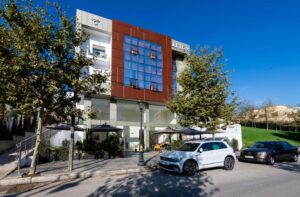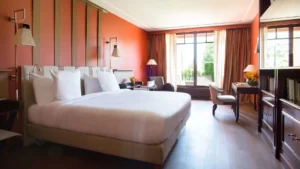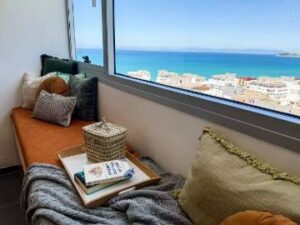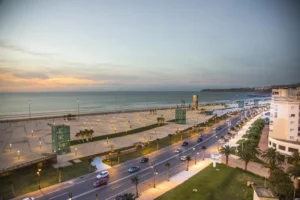Moroccan culture is a vibrant mosaic shaped by Arab, Berber, and European influences.This exceptional blend of cultures creates a fascinating and diverse nation that enthralls visitors from around the globe. From lively souks to tranquil desert landscapes, Morocco provides an immersive experience that touches every sense. Whether exploring ancient traditions, tasting exquisite dishes, or admiring intricate artistry, diving into Moroccan culture is an unforgettable adventure. For personalized tourist bookings in Morocco, contact us via WhatsApp today and start planning your Moroccan journey!
Arab and Berber Influences on Moroccan Culture
Arab Influences
The Arab conquest of Morocco in the 7th century left an indelible mark on the country’s culture. Islam became the predominant religion, and Arabic the primary language. These influences are evident in Morocco’s architecture, music, and cuisine. Historic buildings are adorned with Islamic art and calligraphy, reflecting a deeply rooted cultural heritage. Arabic music styles, such as Andalusian and Chaabi, also play a pivotal role in the rhythm of Moroccan life.
Berber Traditions
The Berbers, indigenous to Morocco, carry a long and proud history that remains deeply woven into the nation’s fabric. Berber traditions, including the Amazigh language and the celebration of Berber New Year, are cornerstones of Moroccan culture. In rural areas, Berber customs thrive, with time-honored lifestyles and crafts continuing to be practiced. The intricate designs of Berber rugs, jewelry, and pottery are highly valued for their craftsmanship. Exploring Berber villages provides an enriching glimpse into the country’s ancient cultural roots.
Exploring Moroccan Culture Through Art and Craftsmanship
Traditional Crafts
Moroccan artisans are celebrated for their exceptional skill and creativity. The artistry found in mosaic tiles, hand-woven carpets, and ceramics illustrates the rich cultural tapestry of Moroccan culture. Workshops and cooperatives across the country invite visitors to witness these crafts being made. Woodwork, metalwork, and textiles also thrive in Morocco’s bustling artisan communities. Supporting local craftspeople ensures these ancient techniques continue to flourish.
Moroccan Architecture
Moroccan architecture is a stunning blend of Arab, Berber, and European styles. From the lavish palaces of Marrakech to the blue-washed streets of Chefchaouen, the visual beauty of Moroccan cities is captivating. Traditional riads, with their enchanting interior gardens, showcase the elegance of Moroccan architectural design. Islamic influences, like intricate tilework and carved wooden doors, enhance the allure of historic buildings. Walking through the narrow alleyways and timeless medinas offers a journey through Morocco’s storied past.
Savoring Moroccan Culture Through Its Cuisine
Traditional Dishes
Renowned for bold flavors and unique spice blends, Moroccan cuisine delights the senses. Tagines, slow-cooked stews named after the earthenware pots they are cooked in, are staples of Moroccan cooking. Alongside couscous, pastilla, and harira soup, these dishes provide a culinary journey rich in sweet and savory combinations. Sharing meals is an integral part of Moroccan culture, making dining a warm and social experience.
Spices and Herbs
A signature of Moroccan cooking, the spices and herbs—such as cumin, saffron, and mint—impart depth and aromatic allure. Ras el hanout, a mix of up to 30 spices, and fresh herbs like parsley and cilantro are used generously in many dishes. Morocco’s bustling spice markets, filled with vibrant colors and enticing fragrances, are a feast for the senses.
Moroccan Tea Culture
Mint tea, often called “Moroccan whiskey,” is a cultural treasure served throughout the day. Its sweet, refreshing flavor represents hospitality and friendship. The ritual of preparing and serving tea is cherished, with every cup shared symbolizing welcome and connection. Many Moroccan homes and establishments have dedicated spaces for making this beloved drink.
Celebrating Moroccan Culture Through Festivals and Events
Religious Festivals
As a predominantly Muslim nation, religious festivals are central to Moroccan life. Ramadan, the holy month of fasting, and Eid al-Fitr, the celebration marking its end, are highly significant. During Ramadan, life takes on a slower rhythm, with family feasts after sunset. Eid al-Fitr is marked with joyous festivities, gift-giving, and family gatherings. Other religious observances include Eid al-Adha and the celebration of the Prophet Muhammad’s birthday.
Cultural Festivals
Beyond religious traditions, Morocco hosts various cultural festivals year-round. From the Fes Festival of World Sacred Music to the Marrakech International Film Festival and the Essaouira Gnaoua and World Music Festival, these events showcase Morocco’s rich heritage and global connections. Attending these vibrant festivals is a wonderful way to immerse oneself in the Moroccan culture and experience its energy and creativity firsthand. Live music, dance, and traditional crafts highlight the nation’s diverse cultural expressions.
Embracing Moroccan Culture: A Journey of Discovery
Moroccan culture is a captivating tapestry woven from centuries of history and diverse influences. From bustling markets to breathtaking architecture, the culture of Morocco offers an experience that leaves a lasting impression. Whether savoring a delectable tagine, wandering through the souks, or being swept away by Andalusian music, Morocco invites travelers on a sensory journey of discovery. Visit our website to explore hotel options and plan your unforgettable Moroccan adventure!

